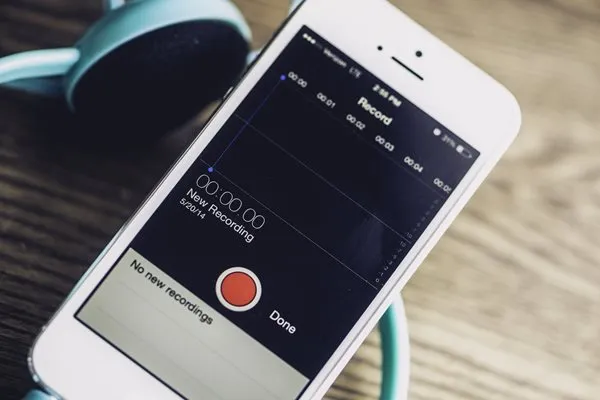Can I Record Calls with My Co-Parent?
The laws regarding consent for recordings and how to follow them to obtain court-admissible evidence.
- 4 min read
- divorce
- family law

With technological developments in the 21st century, recording everything from daily life to significant moments is easier and more accessible. In addition to the everyday moments, recordings can capture critical information and potential evidence. Although many co-parents wish to record their phone calls with their children’s other parent and use these recordings in court, specific laws and parameters must be met for any recording of a conversation to be considered legal and admissible evidence. Co-parents, their partners, and others involved in a shared parenting situation must understand how specific laws impact the ability to record phone calls and present those recordings as court-admissible evidence.
What are the two types of consent laws?
There are two main types of laws in the U.S. related to recording phone calls: one-party and all-party consent. Their names are relatively self-explanatory: one-party consent laws require one person in a phone call to consent to the recording, while all-party consent laws require approval from both people. According to Justia, 35 states and D.C. have one-party consent laws, while 15 follow all-party consent laws. Vermont, a one-party consent state, follows the federal Wiretap Act (18 U.S. Code § 2511) that dictates one-party consent because there is no state-specific statute.
In one-party states, co-parents can record phone calls with their child’s other parent under the protection of the law. Certain states may have limitations in their respective statutes on how people can use and share their recordings.

One-party consent laws apply in these states:
- Alabama
- Alaska
- Arizona
- Arkansas
- Colorado
- D.C.
- Georgia
- Hawaii
- Idaho
- Indiana
- Iowa
- Kansas
- Kentucky
- Louisiana
- Maine
- Minnesota
- Mississippi
- Missouri
- Nebraska
- New Jersey
- New Mexico
- New York
- North Carolina
- North Dakota
- Ohio
- Oklahoma
- Rhode Island
- South Carolina
- South Dakota
- Tennessee
- Texas
- Utah
- Virgina
- West Virgina
- Wisconsin
- Wyoming
All-party consent laws apply in these states:
- California
- Connecticut
- Delaware
- Florida
- Illinois
- Maryland
- Massachusetts
- Michigan
- Montana
- Nevada
- New Hampshire
- Oregon
- Pennsylvania
- Vermont
- Washington
Do consent laws apply to in-person conversations?
Generally, consent laws will still affect whether you can record an in-person conversation, just as they impact phone calls. In any conversation, at least one person must know it is being recorded. Both people in an exchange must be aware of and agree to the recording if they are in an all-party consent state.
Depending on a few factors, you may be able to record in-person conversations without acquiring consent from the other party. In many states, consent requirements typically apply when the people involved have a reasonable expectation of privacy, an essential element of privacy laws. At its core, a reasonable expectation of privacy is present in a person’s private home, their phone calls, and in any other matters that a person may not want to be public information.
For example, if you are in your friend’s home, you must receive consent to record a conversation since both of you would expect privacy in your own homes. However, you can potentially record conversations with others in public due to the inherent lack of privacy in public places.
Is recording without consent a crime?
Recording a conversation or phone call without consent from the other person in an all-party consent state is considered illegal. Each state has varying penalties ranging from civil liabilities to felony charges. For example, those found guilty of recording calls without consent from all parties in California may be subjected to either fines, imprisonment, or both. Those who violate the all-party consent law in Florida may be charged with a misdemeanor or a third-degree felony. Criminal issues may also apply to making a recording if you misinterpret whether there is a reasonable expectation of privacy.
Additionally, recording the conversations or phone calls of others in any state is illegal under federal law. According to the statute, violators will be fined and may spend up to five years in prison.
Can I record my conversations with my co-parent?
The short answer is “maybe”. Once you assess what consent law your state follows, you can record conversations and phone calls as long as you follow your state’s specific guidelines. It may take thorough research to confirm that state and federal laws will protect your actions.
Before recording your conversations with your co-parent without letting them know, ensure you are in a one-party consent and review your state’s specifications to obtain legal recordings. If you are in an all-party state, you must notify your co-parent each time you wish to record in-person or over-the-phone conversations. The same rules apply even if your children are on a call with their other parent. In any case, it is best to consult a family law attorney to ensure your actions are legal and your recordings are admissible in court.

Can I record my partner’s interactions with their co-parent?
If your partner is in a shared parenting situation with another person, you may be tempted to record interactions to support your partner. If you were to record phone calls or conversations between your partner and their co-parent without notifying both people, that would violate federal and state laws. In any shared parenting situation, recording in-person conversations and phone calls between co-parents should be handled by themselves and not by a third-party individual.
How TalkingParents does more than record calls
Determining whether you can safely record conversations and use those recordings as evidence is a tricky balancing act. For co-parents looking for a more convenient and user-friendly solution, a communication service like TalkingParents can be an excellent asset for any shared parenting situation. With Accountable Calling℠, each co-parent must consent to receive a call from the other parent before it is initiated, and every phone and video call comes with an automatically generated transcript and recording. This automatic notification of recording means that call recordings are obtained legally in one-party and all-party consent states.
Additionally, every call, message, calendar update, and other interaction that either parent makes within TalkingParents is timestamped and documented on an Unalterable Record that both parents can access. As part of your Records, these transcripts and recordings are admissible in court and avoid violating state and federal laws, enabling you and your co-parent to communicate in an accountable, documented manner.